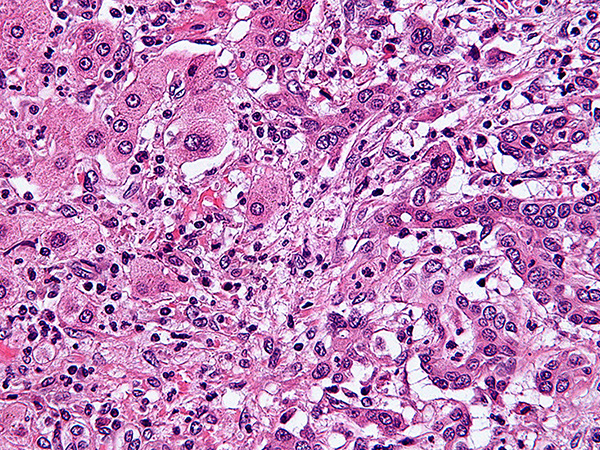Targeting Bile Duct Cancer
The U.S. FDA approved a molecularly targeted therapeutic to treat certain patients with cholangiocarcinoma.
The U.S. Food and Drug Administration (FDA) approved the molecularly targeted therapeutic ivosidenib (Tibsovo) for certain patients with cholangiocarcinoma—bile duct cancer. The agency also approved a companion diagnostic to help select patients with the targeted biomarker for the treatment.

Ivosidenib was approved for adult patients with locally advanced or metastatic bile duct cancer who had been previously treated and whose cancer has a mutation in the isocitrate dehydrogenase-1 (IDH1) gene.
The approval was based on the results of a randomized, multicenter clinical trial involving 185 patients with the IDH1 mutation and whose disease had progressed following prior therapy, including at least one gemcitabine- or 5-flurouracil-containing chemotherapy regimen, who received either ivosidenib or placebo.
Patients who received ivosidenib had a significant improvement in progression-free survival (a 63 percent reduction in the risk of disease progression) compared to patients who received placebo.
Bile duct cancer can develop outside the liver—extrahepatic —or inside the liver— intrahepatic.
The FDA decision was rendered on August 25, 2021.
